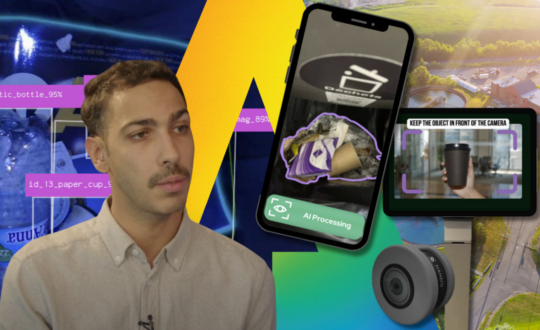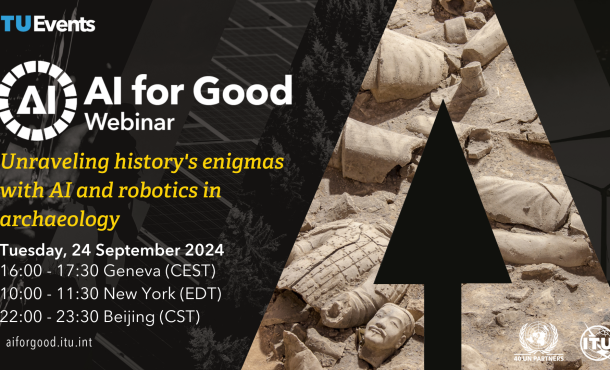3 key ways to prepare for the AI revolution: Opinion

As we know, the iMac came out in 1998. Apple’s slogan at the time — “think different” — represented both the company’s cornerstone message and their rallying cry as it rapidly innovated, finding ways to disrupt traditional industries.
Whether it be the music or phone sector, Apple transformed spaces, dramatically influencing people’s thinking and their behavior.
Recognizing we are at a similar crossroads in which disruptive, transformative thinking is required, my company Technossus, recently interviewed two thought leaders about what it takes to be competitive in today’s economy: Sara Branch, our very own knowledgeable director with nearly 20 years’ project management experience and Neil Sahota, coauthor of Own the A.I. Revolution: Unlock Your Artificial Intelligence Strategy to Disrupt Your Competition and Technossus’ Emerging Tech Principal, who works with mid- to large-sized enterprises on developing and utilizing tech for customer needs and operations.
Knowing Branch and Sahota to also be advocates of thinking differently — so as to not be one of the those disrupted by the so-called 4th Industrial Revolution, but rather one of its disruptors — we discussed what else is needed to thrive.
What follows are their three key suggestions to compete in these unprecedented times:
1) Modify Your Mindset
According to a recent article in the Guardian, among other reports, a host of previously viable professions are under threat of disappearing in the coming years. Importantly, many of the listed occupations don’t fall under blue collar work, such as truck drivers, or retail jobs long considered susceptible to automation. For instance, there is 98% likelihood loan officer roles will be replaced by bots, and a 94% chance that today’s paralegal work will soon be accomplished by computers.
“The most successful groups and individuals today are busy finding ways to solve smaller, simpler challenges via AI, leading to dynamic results.”
In order to prepare for likelihoods such as these, as well as the prospect of entire businesses or industries becoming irrelevant, we must mentally prepare in more ways than one.
“It begins and ends with your thinking,” says Branch. “Many people adopt a head-in-the-sand approach when it comes to anything technological. Fortunately, we work with individuals who value creative disruption, especially when they see a clear path to better business outcomes. Unfortunately, individuals who struggle with this way of thinking may be the most vulnerable to disruption. In order to avoid so many of the threats we hear about daily, we must cultivate a new paradigm; one that takes into consideration this question: How might I provide value to others in light of this new technology so I can stay in demand?”
To this end, Branch recommends investing in education once you have embraced this new mindset. Cognizant of the speed of transformation, she advises individuals and companies alike to seek out the latest research, books, articles, podcasts, and other forms of content to stay informed.
“Yes, never before has the world changed so quickly before our eyes, and never before have there been so many ways to acquire knowledge,” says Branch. “It’s a good idea to take as many courses as you can online. You really can empower yourself with all of the competitive intelligence at your fingertips.”
2) Go Small (to Win Big)
“Businesses exist to solve problems,” says Sahota. “What people don’t yet understand is that AI applications don’t have to be earth-shattering to be effective — and therefore profitable.”
Sahota’s larger point is that it’s not necessary to employ AI to every aspect of your business to not get swallowed up by bigger players.
“If the corporate cultures of Silicon Valley have taught us anything, it’s that none of us is as smart as all of us.”
Similarly, it’s not necessary to lose your own humanity to become as productive as today’s robots. Instead, the most successful groups and individuals today are busy finding ways to solve smaller, simpler challenges via AI, leading to dynamic results.
“Today’s machine learning is narrowly driven,” explains Sahota. “I observed this firsthand witnessing how a translation company called Lingmo was able to zero in on one specific thing — translation — to great effect. Because it can be so hard to develop the proper training in time to go to market, I very much recommend pinpointing a problem that others face, whether it be your customer — or your boss — and then using AI to find a helpful solution.”
According to Sahota, by being hyper-focused in this way, you can avoid the risk of being overwhelmed by all of the training as well as other factors that make AI adoption and implementation such a daunting challenge.
3) Surround Yourself with Experts
If the corporate cultures of Silicon Valley have taught us anything, it’s that none of us is as smart as all of us. It’s therefore beneficial to assemble the best possible team.
Outside support is especially ideal for companies looking to quickly adopt to changing conditions.
“I love this quote from marketing guru David Ogilvy,” says Branch. “‘If you ever find a [person] who is better than you are — hire [them]. If necessary, pay [them] more than you would pay yourself.’ (Gender pronouns modified to be more current.) The point is, it’s advisable to recognize the virtue of collaborating with others possessing talents or expertise outside your own.”
Further to Branch’s point is the recognition today’s companies and individuals need to embrace equally — appealing to outside experts and/or using a team can not only expedite the adoption process, it can lead to greater successes than simply acting alone.
At the end of the day, what this new era is forcing so many of us to recognize may be summed up in a quote from renowned physicist Albert Einstein: “No problem can be solved from the same level of consciousness that created it.”
If we want to stay competitive, if we want to stay ahead of what’s coming, we truly must transform our thinking. For once we do, a world of possibilities may open up to us in novel ways we may not yet imagine.













